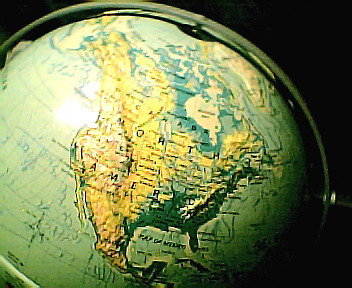One of the most important sections to fill in is your Location. This information is used not only by your own visitors, but also by searchers all over the site, and even by the curators of high profile features like the Etsy Finds newsletter.
There are three steps to take when marking your shop’s location. The first is to select your country from the drop-down menu - this will show up along with your shipping prices in every listing. It helps let customers know how long a package might take to arrive.
Then you can manually type in your location. The standard format is City, Province, Country, like:
Edmonton, Alberta, Canada or
Melbourne, Victoria, Australia, or
San Francisco, California, United States.

So, if you live in Winnipeg, Manitoba, Canada, but have something in your location bar like “#17 Cherry Tree Lane”, your customers might think it’s cute, but you’ll be all alone when it comes to finding shops by area. If someone clicks on that link, they’ll find only you. If someone clicks on a link from another shop in Winnipeg, they won’t see you at all. But they will find plenty of other shops in your area, some of which might have similar products as you.

It Must Be a Pretty Lonely Place
If your location is simply listed as something like Squamish, you’re fortunate to be among the few sellers who’s location is totally unique. But most city names have been used more than once around the world. If you’re not listing your whole location, shoppers don’t have any way to find you in the haystack of other shops.
For instance, if you type London into the Shop Local tool, you will see a variety of recently updated shops from Canada, and the UK. If you want to narrow that down to only shops in Canada, you could type in London, Canada. Then only shops that have both of those words in their location field will show up. Any shops that just have “London” for their location will not be found in that search.

One Keyword, Two Totally Different Countries
Many sellers list multiple locations for their shops. Some go crazy with lists like “New York, London, Paris, Milan” which is a lot like tag stuffing and lacks the community spirit that we hope for in an Etsy shop.
Other shops will list some of the familiar cities in their area, like “Blackfalds, near Red Deer and Edmonton, Alberta, Canada”. While this will get your shop into more search results, it defeats the purpose of the City, Province, Country format, and creates a stand alone tag that only points to you.
If you live in a very small community, and would prefer to get a better traffic stream from a larger population, you can list the nearest city as your location instead. Technically, listing your location at all is totally optional on Etsy, so as long as you’re not outright lying about what country you’re making your goods in, it’s okay to fudge it a little bit. If you go this route, it’s a good idea to include a little more detail about your location in your profile, if you‘re comfortable doing so.

Can Visitors Actually Tell Where Your Shop is Located?
The third step to setting your shop location is to mark yourself with a pin on the Google world map. This will create a tab for you in Geolocator 3, which is what visitors will see when they click on any location link.
You don’t have to zoom right in and put a pin over your actual house. And if you’re really uncomfortable with the idea, you could put your pin on your area’s capital city, or the nearest large city center. This will ensure that you are still showing up in the correct area, but not letting just anyone know where you live.

No Wonder People Think All Canadians Know Eachother
Shoppers can also use Geolocator 3 to search listing tags, and see the results by location. So the closer your pin is to your actual base of operations, the easier it will be for people to find you and your products.
Like all aspects of an Etsy shop, the location field should be used with accuracy, and honesty. The more information you can provide to shoppers and searchers, the more potential you have for sales, and loyal customers.
Copyright 2010 Oh Canada Team


 Proudly Canadian?
Support Handmade!
Grab This Button!
Proudly Canadian?
Support Handmade!
Grab This Button!








2 comments:
wow! thank you so much for such an informative, well written and helpful article! Much appreciated!
This is so useful, thanks so much! I use geographic location to shop all the time and I wish more shops had accurate/complete locations listd.
Post a Comment